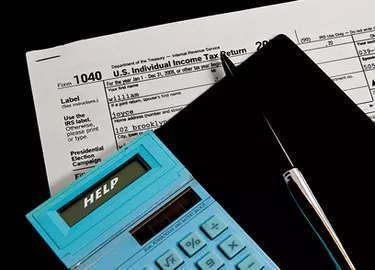
Most people associate taxes with Uncle Sam and the federal government, or state sales, fuel and income taxes. While the federal government has the largest budget and longest tax forms, there are actually more forms of taxation at the local level.
Citizens not only pay state and federal income taxes but are also taxed locally through income taxes, sales taxes, property taxes, and perhaps estate taxes. These taxes help fund local infrastructure improvements, public services and other benefits to the community.
Video of the Day
Video of the Day
Local Income Tax
Local governments can tax realized personal and corporate income just like state and federal governments. Typically only local governments organized as municipalities or villages collect local income tax whereas townships often do not. Many states collect income tax from residents, then distribute part of it back to communities, explains the U.S. Department of the Treasury.
Consider Also: Form 1040: What You Need to Know
Different Sales Taxes
Sales tax is usually handled at the county level and has two components: state sales tax plus county sales tax. Sales tax is applicable on all goods purchased but is not calculated for services purchased. Sales tax collection and payment is the duty of retailers, not consumers, but it is consumers that pay these taxes at the register.
Georgia communities, for example, can levy a Special Purpose Local Option Sales Tax approved by communities through a special voter referendum. The voters agree to the tax that is used for a special purpose, such as to fund a road, water or sewer project or an education initiative.
Cities that rely on tourism often add a room or tourism tax to help fund marketing of the community, as well as to fund the extra burden of dealing with more people, traffic, garbage and other tourism-related issues.
Basic Property Taxes
Every local government depends on property tax revenues. Regardless of what type of property is in question there are taxes associated with it. Often times commercial or retail property tax rates are higher than residential property tax rates, but all property owners pay taxes.
If property taxes are not paid the county can sell tax liens or tax deeds against the property and the owner runs the risk of losing the property. Many communities offer homestead exemptions that offer lower property taxes to residents' primary dwelling (homes) vs. rental or flip properties.
Death/Estate Tax
Estate tax is a tax levied against the wealth that one leaves behind upon their death. Some, but not all states charge an estate tax in addition to the estate tax imposed by the federal government. Estate tax laws are constantly changing and they are often a tool used by state governments to fix holes in state budgets.
Local Fuel Tax
Most people don't realize that they are paying fuel taxes each time they fill up their cars at a local gas station. Since individuals don't see fuel tax, they often assume it doesn't exist. Fuel taxes are built into the advertised price that we pay for gas and are hidden from the view of consumers.
Different Miscellaneous Taxes
In addition to the specific taxes listed above there are dozens of other forms of local taxation. When you head to the DMV to renew your license each year you pay a tax to renew your license. When you record the deed to a home you purchase you pay a tax for updating the title on the property. Any fee imposed by a local government upon a citizen for a service rendered is a form of taxation.